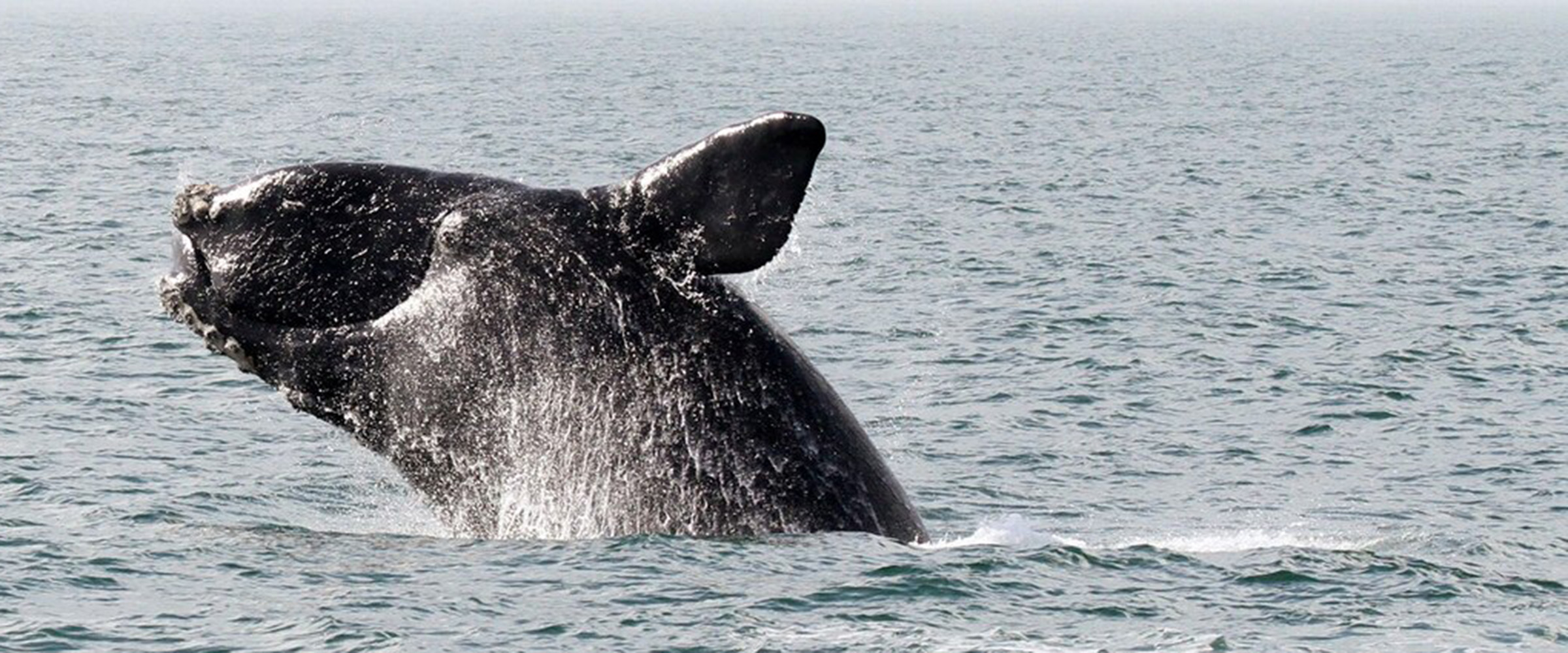We must ensure these vulnerable whales are safe in their ocean home.
If you take action and have not already registered, you will receive periodic updates and communications from Wildlife Conservation Society.
Urge Members of Congress to do the right thing for critically endangered North Atlantic right whales. If they block action that would reduce vessel strikes, the leading cause of mortality outside of fishing entanglements, the road to recovery for the North Atlantic right whale will be extremely difficult, potentially leading to the extinction of the species.
Photo: North Atlantic right whale

If you take action and have not already registered, you will receive periodic updates and communications from Wildlife Conservation Society.

Poaching, trafficking, and illegal trade endanger hundreds of vulnerable species.

Changes in climate jeopardize biodiversity and the health of entire ecosystems.

Logging, mining, burning: human encroachment destroys homes and havens for wildlife.

For 125 years, WCS has been dedicated to saving wildlife and wild places, powered by the expertise and science in our zoos, aquarium, and global conservation program.
Our legacy of success now positions us perfectly to take on the world’s most pressing conservation challenges—the zoonotic pandemic crisis, the decline in the world’s biodiversity, and the climate crisis—with urgent and bold action.
We focus on protecting the planet’s most important, ecologically intact places with the greatest biodiversity and resilience to climate change. With your help, we can secure a future worth celebrating.





Yes, your donation is tax-deductible to the full extent allowable by law. Your receipt—which you’ll see upon completing your contribution and receive in email—will indicate the amount of your gift that is tax-deductible.
To learn more about the work we do to save wildlife and wild places, join our mailing list and follow us on social media: Facebook, Instagram, LinkedIn and Twitter. You can also read through our latest Annual Reports to see WCS impact on wildlife around the world, and how your support will help.
Your generous gift will go wherever the need is greatest to support our global conservation work of saving wildlife and wild places.
While all donations are welcome, monthly giving is the preferred method of giving. As our work requires persistent dedication, we require long-term support so we can be there for wildlife today and in the future.
You are always in control of your monthly giving. Simply log on to https://secure.wcs.org/user to change, stop, or delay your monthly gifts through your own, secure online service center.
To register or to obtain a new password visit: https://secure.wcs.org/user/password
If you have any questions about your gift, please contact Member Services at 718-220-5112, Monday – Friday 9 AM to 5 PM EST or email us at donate@wcs.org.
Become a WCS Conservation Patron and join a community of WCS’s most passionate and engaged supporters! By donating $125 monthly or $1,500 annually or higher, you can conserve vulnerable animals around the world and receive WCS insider access, communications, and benefits.